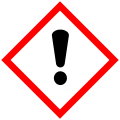- Troy Nehls, Texas, Chair
- Brian Babin, Texas
- David Rouzer, North Carolina
- Mike Bost, Illinois
- Doug LaMalfa, California
- Bruce Westerman, Arkansas
- Pete Stauber, Minnesota
- Tim Burchett, Tennessee
- Dusty Johnson, South Dakota
- Tracey Mann, Kansas
- Rudy Yakym, Indiana
- Thomas Kean Jr., New Jersey
- Eric Burlison, Missouri
- Brandon Williams, New York, Vice Chair
- Marc Molinaro, New York
- John Duarte, California
- Vince Fong, California (from June 3, 2024)
| - Donald Payne Jr., New Jersey, Ranking Member (until April 24, 2024)
- Frederica Wilson, Florida, Ranking Member (from May 7, 2024)
- Seth Moulton, Massachusetts
- Troy Carter, Louisiana
- André Carson, Indiana
- Mark DeSaulnier, California
- Marilyn Strickland, Washington
- Valerie Foushee, North Carolina
- Grace Napolitano, California
- Steve Cohen, Tennessee
- Hank Johnson, Georgia
- Jared Huffman, California
- Chuy García, Illinois
- Rob Menendez, New Jersey
|


